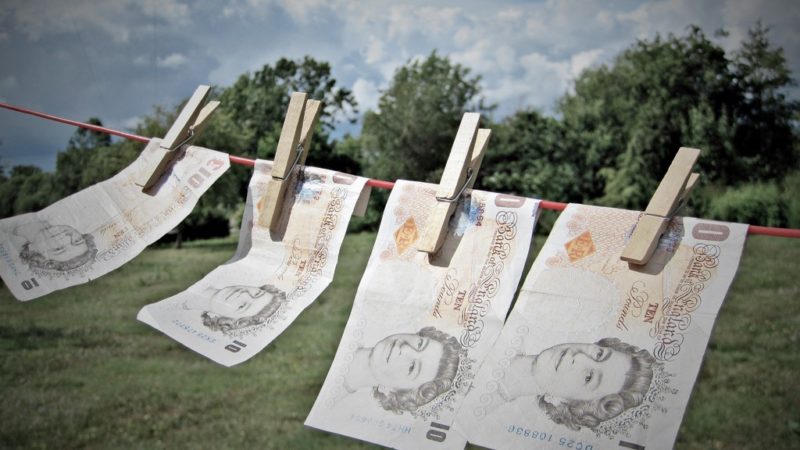Privatised industries pursue short-term objectives rather than long-term social objectives

Prem Sikka is an Emeritus Professor of Accounting at the University of Essex and the University of Sheffield, a Labour member of the House of Lords, and Contributing Editor at Left Foot Forward.
Why is the cost-of-living crisis in the UK worse than most major European countries? A larger proportion of the population lives in poverty and relies upon foodbanks for survival. Pensioners are resorting to riding buses all day just to keep warm.
This is the consequence of disastrous economic policies. Privatisation of publicly owned industries, often monopolies, is one such policy. Whereas governments can control and direct publicly owned industries, its leverage over the private sector is less.
Profiteering by former publicly owned gas and electricity industries is a major reason for high energy prices and inflation, and a cost-of-living crisis.
In the 1970s, the UK won nature’s lottery in the form of oil and gas reserves in the North Sea. In 1975, the Labour government formed the British National Oil Corporation, which subsequently became Britoil, to manage the nature’s gift and ensure that profits went primarily to the public purse.
In November 1982, the Conservative government privatised Britoil and handed control of the North Sea oil and gas to corporations who have made mega profits ever since. Since 2010, energy firms have paid £200bn in dividends and share buybacks to shareholders, and the North Sea largesse has been a major factor.
This year, gas and electricity prices have already risen by an average of 54% and another 40% rise is expected later this year. The cost of producing energy has hardly changed but the selling price hasn’t, enabling energy companies to make massive profits. The government has made attempt to control profiteering.
This week, BP announced that its profits for the first three months of year have doubled to $6.2bn (£5bn). It will hand $2.5bn to shareholders through a share buyback programme. For the same period, Shell tripled its profits to $9.1bn (£7.3bn). It has handed $5.4bn to shareholders and will use another $4.5bn in share buybacks. In the absence of privatisation, some of the profits and dividends would have accrued to the public and could have been used to manage the cost-of-living crisis.
In sharp contrast, the French government has capped energy price rises at 4%. It controls energy companies and can therefore direct them to pursue national rather than private interests. Électricité de France (EDF) is 85% owned by the French government and is being used to check domestic energy prices. Its UK subsidiary EDF Energy supplies gas and electricity to around 6 million customers but is not subject to UK government control. At the direction of the French government, EDF profits in the UK are being used to subsidise the French households.
Privatised industries pursue short-term objectives rather than long-term social objectives. British Gas was privatised in 1986. Its current owners Centrica have sought to increase profits by reducing gas storage facilities. The UK has just nine terawatt hours of stored gas reserves, compared to 168 in Italy and 151 in Germany. This is equivalent to around 2% of the UK demand, compared to 25%-37% in major European countries. Inevitably, the UK population is exposed to greater price uncertainty, resulting in higher household bills.
Royal Mail was privatised in 2014. In 2021, it announced operating profit of £700m, more than double the previous year’s £325m. The price is paid by normal people.
In 2013, the price of the first and the second-class postage stamps was 60p and 50p respectively. Today, it is 95p and 68p, an increase of 58% and 36%. How has many people’s income increased at the same rate?
Over 100 companies are involved in running the privatised railway system, resulting in duplication of administration and higher costs. Train companies continue to receive public subsidies. In 2020-21, they received £16.9bn of public funding. In the five years to 2020, train companies handed £1.3bn to shareholders. In 2021, at the height of the pandemic, train companies paid out another £1bn in dividends. Just before Covid, Britons were paying 54p per mile to use the rail network, making it the second-most expensive nation in Europe for rail travel.
England’s privatised water companies continue to discharge raw sewage into rivers. Since privatisation, in 1989, water bills have increased by more than 40% in real terms.
In 2018, Environment Secretary Michael Gove said that water companies
“have shielded themselves from scrutiny, hidden behind complex financial structures, avoided paying taxes, have rewarded the already well-off, kept charges higher than they needed to be and allowed leaks, pollution and other failures to persist for far too long … there has been no investment in new nationally significant supply infrastructure, such as major reservoirs, since privatisation”.
Little has changed. During the last 11 years, water companies paid £16.8bn in dividends and executive pay has soared.
The above has provided a brief glimpse of the damage done by obsession with privatisation of energy, transport, mail, and water. Profiteering has fuelled inflation, culminating in a cost-of-living crisis for millions, even before the current headlines. Profits siphoned off by shareholders could have been used to build infrastructure and mitigate the cost-of-living-crisis. Successive governments have done little to check profiteering. There is little consideration of the long-term consequences or impact upon the masses. Essential industries need to be brought back into public ownership.
Left Foot Forward doesn't have the backing of big business or billionaires. We rely on the kind and generous support of ordinary people like you.
You can support hard-hitting journalism that holds the right to account, provides a forum for debate among progressives, and covers the stories the rest of the media ignore. Donate today.



